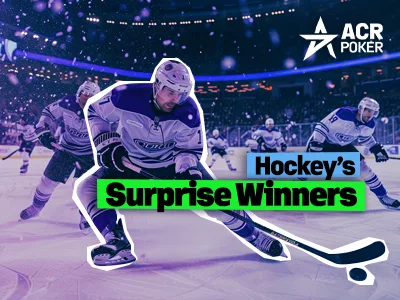The Unique Appeal of NHL Underdogs
Hockey’s inherent volatility makes it a fascinating landscape for strategic wagering. Unlike many sports where favorites often dominate, the National Hockey League’s structure creates frequent and lucrative opportunities for those who know how to bet NHL underdogs. The combination of a low-scoring environment, the outsized influence of a goaltender, and the reality of a long, grueling season means that on any given night, any team can emerge victorious. This article outlines a methodological approach to identifying value in these situations, moving beyond simple intuition to a data-informed strategy.
Defining Value in the Hockey Betting Market
Value is the cornerstone of any successful betting strategy, especially when you bet NHL underdogs. It exists when the probability of an outcome is greater than what the implied probability of the odds suggests. For example, if a team is listed at +200 on the moneyline, the odds imply a 33.3% chance of winning. If a bettor’s analysis, incorporating key metrics and situational factors, determines the team’s true probability of winning is 40% or higher, they have identified a positive value opportunity. The entire process of how to bet NHL underdogs revolves around finding these discrepancies between public perception and actual probability.
Critical Metrics for Hockey Underdog Analysis
Evaluating an underdog requires looking beyond the win-loss column. Several advanced statistics provide a clearer picture of a team’s underlying performance and potential for an upset.
5v5 Scoring Metrics and PDO
Analyzing a team’s performance at 5-on-5 is crucial. Metrics like Corsi (shot attempt differential) and Fenwick (unblocked shot attempt differential) measure puck possession, a strong indicator of which team is controlling play. A team on a losing streak with strong underlying possession numbers is often due for positive regression. Similarly, PDO (the sum of a team’s shooting percentage and save percentage at even strength) regresses heavily toward 1000. A team with an unsustainably low PDO is often unlucky and poised for improvement, making them a prime candidate when you bet NHL underdogs.
Special Teams Disparity
A significant special teams advantage can level the playing field. An underdog with a top-tier power play facing a favorite with a weak penalty kill has a clear path to score. Conversely, an underdog with a strong penalty kill can neutralize a favorite’s most potent offensive weapon. This special teams matchup is a critical filter for selecting which underdogs have a tangible tactical advantage.
Spotting Profitable Situational Contexts
The schedule and emotional state of teams create predictable scenarios where underdogs thrive.
Back-to-Backs and Goaltender Fatigue
The NHL schedule is demanding, with teams often playing games on consecutive nights. A rested underdog at home facing a favorite playing its second game in two nights holds a significant energy advantage. This is compounded if the favorite’s starting goaltender is fatigued or if a less reliable backup is forced into action. This is one of the most reliable situations for those learning how to bet NHL underdogs.
The Letdown Game and Look-Ahead Spots
Emotional cycles are powerful in hockey. A favorite coming off an emotionally charged rivalry game or a big comeback win is often vulnerable to a letdown in its next outing. Similarly, a “look-ahead spot” occurs when a favorite might be overlooking a current underdog opponent because a more prestigious or rivalry game is next on the schedule. Identifying these psychological factors is a key advanced skill.
Strategic Execution: Moneyline vs. Puck Line
Choosing how to wager is as important as choosing who to wager on.
The Case for the Moneyline
When you bet NHL underdogs, the most direct approach is often the moneyline (win outright). This captures the full value of an upset without the risk of a “bad beat” where a team wins but fails to cover a +1.5 puck line. If your analysis suggests a strong chance of a straight-up win, the moneyline is the preferred vehicle.
When to Consider the Puck Line
The puck line, where an underdog receives a +1.5 goal handicap, offers a safer alternative but at lower odds. This can be a useful tool for underdogs known for playing tight, defensive games or those with an elite goaltender capable of forcing overtime or a one-goal loss. It provides a layer of protection for games where a win might be less likely, but keeping the game close is a strong possibility.
Building a Disciplined Process
A successful approach to how to bet NHL underdogs requires more than just picking teams; it requires a disciplined process.
Line Shopping and Bankroll Management
Securing the best possible odds is non-negotiable. Different sportsbooks will offer slightly different prices on the same moneyline. A disciplined bettor will have accounts with multiple books to ensure they are always getting the most value for their wager. Furthermore, strict bankroll management—risking only a small, consistent percentage of one’s total funds on each bet—is essential to surviving the inevitable losing streaks and thriving long-term.
Avoiding Public Overreactions
The betting public often overreacts to recent results, inflating the lines for hot teams and creating value on cold teams with strong underlying metrics. A smart strategy involves being contrarian, often betting against the public sentiment to find the most advantageous numbers. This disciplined, value-focused approach is the true smart way to bet NHL underdogs.


